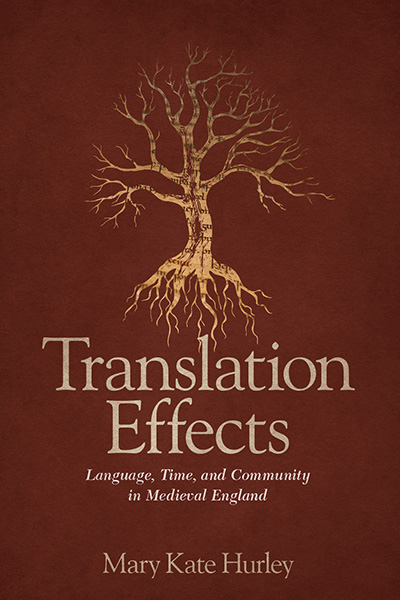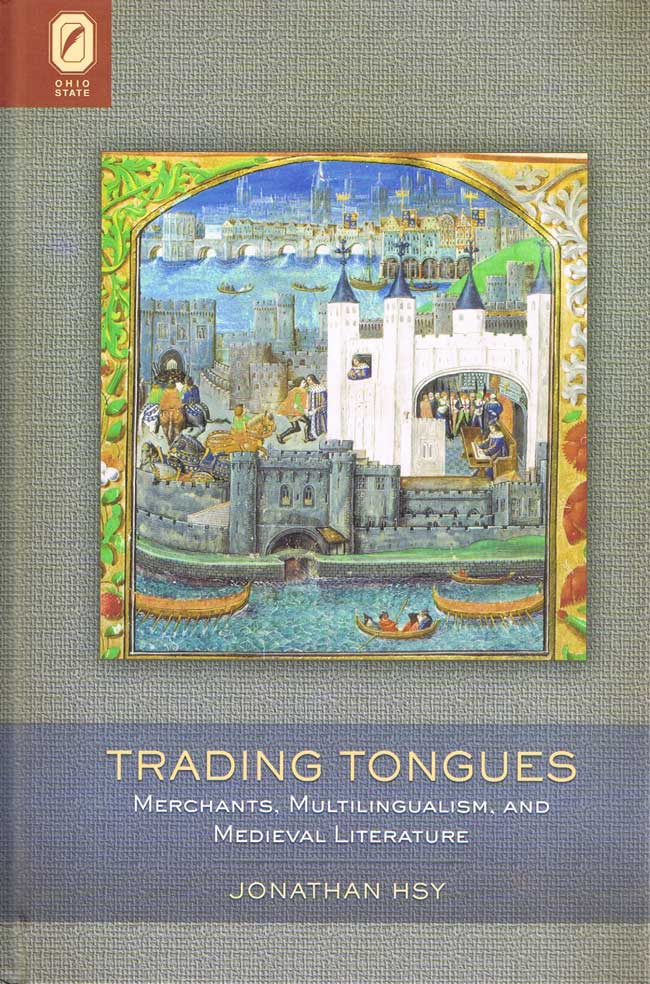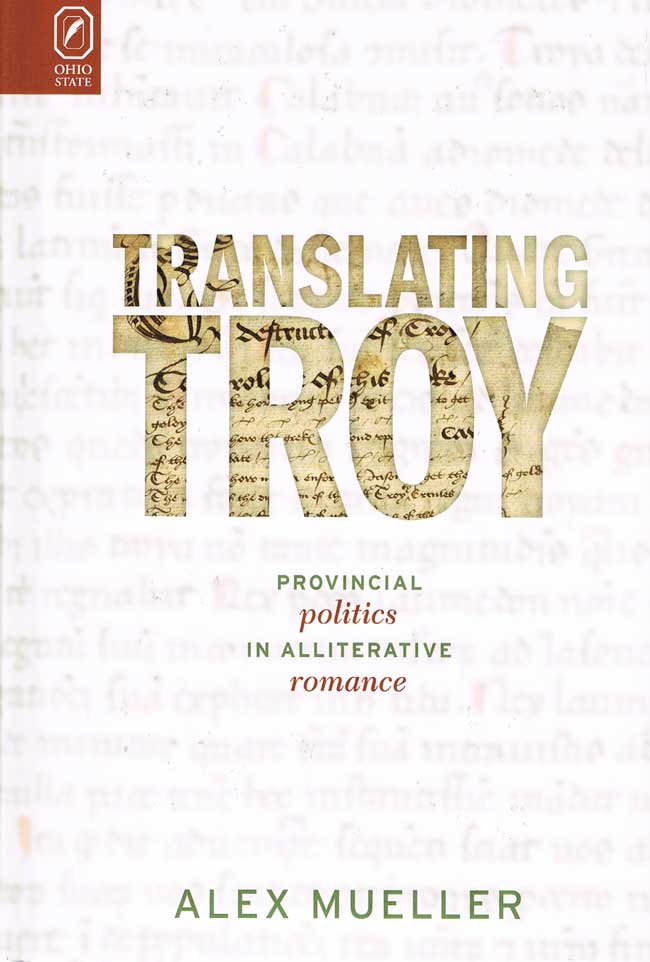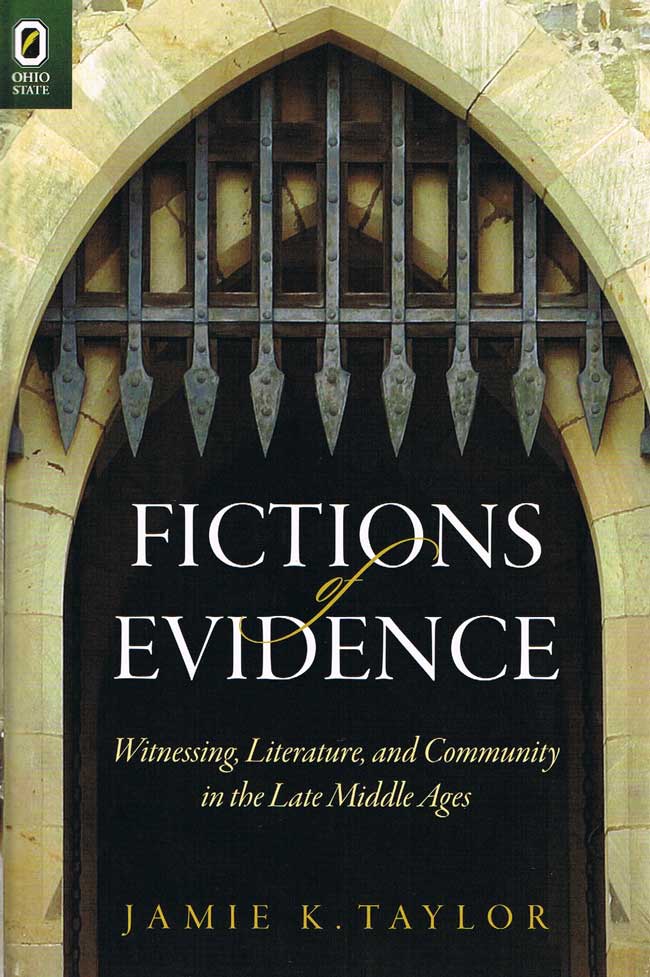“[Hurley’s] study allows us to see how thinkers, writers, scribes, and artists in medieval England grappled with differences between themselves and others, between their historical moment and the past, between the unique elements of their culture and of others. … I did not expect to be provoked in the final pages into considering the future promised by the book’s rich readings and theoretical potentialities.” —Benjamin A. Saltzman, Modern Language Quarterly
“Translation Effects is a rich and rewarding study of multiple modes and consequences of the act of translating … For the field of medieval studies broadly and early English studies particularly, Hurley’s reflections, her care, and her insight exemplify and point us with hopeful energy toward newer and more welcoming ways of thinking and doing.” —Elaine Treharne, Modern Philology
“This book is to be welcomed as offering a new angle on translation in medieval England, one that will be of benefit to future scholarship. The key idea of translation effects is original and certainly valuable, and Hurley, by making use of it in her textual analyses, presents interesting readings of a selection of relevant writings.” —Hugh Magennis, Speculum
“This is a well-written, easily absorbed text [that] offers a methodology for examining translations that is apt to bring into sharp focus the wider contemporary concerns of both translator and audience. The study of translation effects may help scholars to better understand how a particular community understood their history and signalled their identity.” —Georgina Pitt, Parergon
“Mary Kate Hurley proposes a new approach to translation studies, using the concept of the translation effect, a broader and more flexible approach to literary and cultural translation than has previously been attempted. Translation Effects is lucid, forceful, and a joy to read.” —Robert Stanton, author of The Culture of Translation in Anglo-Saxon England
“This ambitious and engaging book succeeds admirably well in disclosing the translation effects that are inscribed within certain medieval texts, distinctive traces that reveal writers in the process of reimagining and repurposing old texts for contemporary communities.” —Alastair Minnis, author of Hellish Imaginations from Augustine to Dante: An Essay in Metaphor and Materiality
In Translation Effects: Language, Time, and Community in Medieval England, Mary Kate Hurley reinterprets a well-recognized and central feature of medieval textual production: translation. Medieval texts often leave conspicuous evidence of the translation process. These translation effects are observable traces that show how medieval writers reimagined the nature of the political, cultural, and linguistic communities within which their texts were consumed. Examining translation effects closely, Hurley argues, provides a means of better understanding not only how medieval translations imagine community but also how they help create communities.
Through fresh readings of texts such as the Old English Orosius, Ælfric’s Lives of the Saints and Homilies, and Beowulf as well as works by Chaucer, Trevet, and Gower, Translation Effects adds a new dimension to medieval literary history. Hurley connects translation to community in a careful and rigorous way and traces the lingering outcomes of translation effects through the whole of the medieval period.
Mary Kate Hurley is Associate Professor in the Department of English at Ohio University.
Contents
Acknowledgments
Introduction
Chapter 1 What Orosius Said: Temporal Heterogeneity in the Old English Orosius
Chapter 2 Sanctity and Soil: Ælfric’s Life of Oswald, King and Martyr
Chapter 3 Communities of the Page in the Ælfrician Homiletic Corpus
Chapter 4 Becoming England: The Northumbrian Conversion in Trevet, Gower, and Chaucer
Chapter 5 Beowulf’s Collectivities
Coda
Bibliography
Index





